Manchester Arena attack: Families oppose screen for MI5 witness
- Published
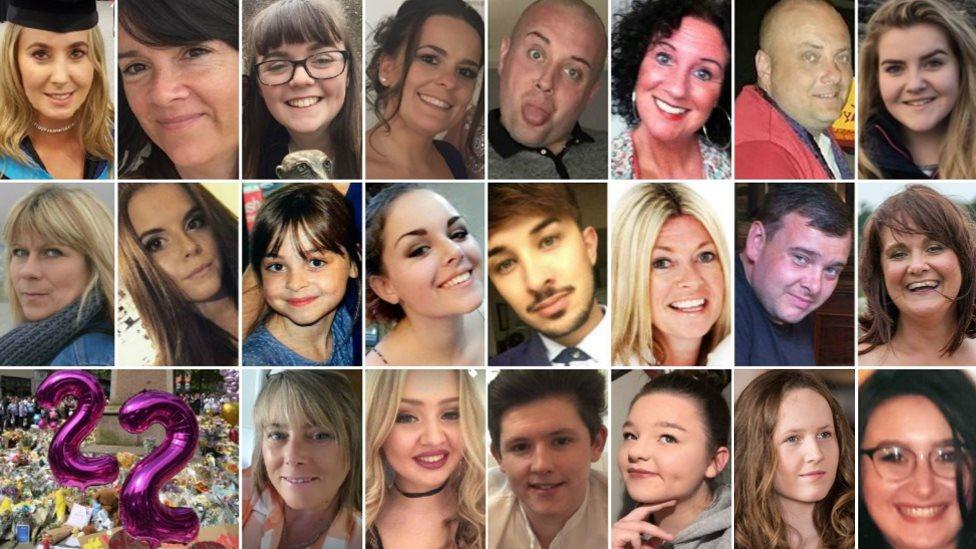
The bomb was detonated at the end of an Ariana Grande concert and killed 22 people
The families of 22 people killed in the Manchester Arena bombing have opposed moves to allow a senior MI5 officer to give evidence behind a screen at the public inquiry into the terror attack.
Government lawyers want the security service member to only be seen by the inquiry's chairman and lawyers.
The detailed reasons for needing the screen were also secret, lawyers said.
But the legal team representing the families argued the screen would not deliver an "open and fair inquiry".
Twenty-two people were killed and hundreds injured when Salman Abedi, 22, detonated a suicide bomb as fans left the arena following an Ariana Grande concert on 22 May 2017.
Cathy McGahey QC, on behalf of the Secretary of State for the Home Office, asked for a restriction order to screen the MI5 officer, known as Witness J.
But Duncan Atkinson QC, on behalf of the families, asked for the proposal to be rejected, saying families would not be able to see the witness "face to face" and instead only listen to a "disembodied voice".
'Clear public interest'
"What is being suggested on behalf of the Secretary of State would not deliver that open and fair inquiry to which you, sir, have always committed yourself," Mr Atkinson said.
He added there is "a very clear public interest" that "things are not being hidden from them".
"The families have been the victims of terrorism, the very last thing they would want to do is assist an act of terrorism in the future," he added.
"But they do seek answers as to how they came to be the victims of terrorism and whether things could have been done to stop them being victims of terrorism."
The chairman is also being asked by government lawyers to ban all electronic devices while Witness J is giving evidence, so there is no "inadvertent disclosure" of information that could lead to his identification.
Only handwritten notes would be allowed to be taken during Witness J's evidence and if sensitive evidence is released by accident then such notes must be destroyed.
Abedi's younger brother, Hashem Abedi, was convicted of 22 counts of murder in March at the Old Bailey and is expected to be sentenced in August.
The public inquiry is scheduled to begin on 7 September.

Why not follow BBC North West on Facebook, external, Twitter, external and Instagram, external? You can also send story ideas to northwest.newsonline@bbc.co.uk, external
Related topics
- Published13 July 2020
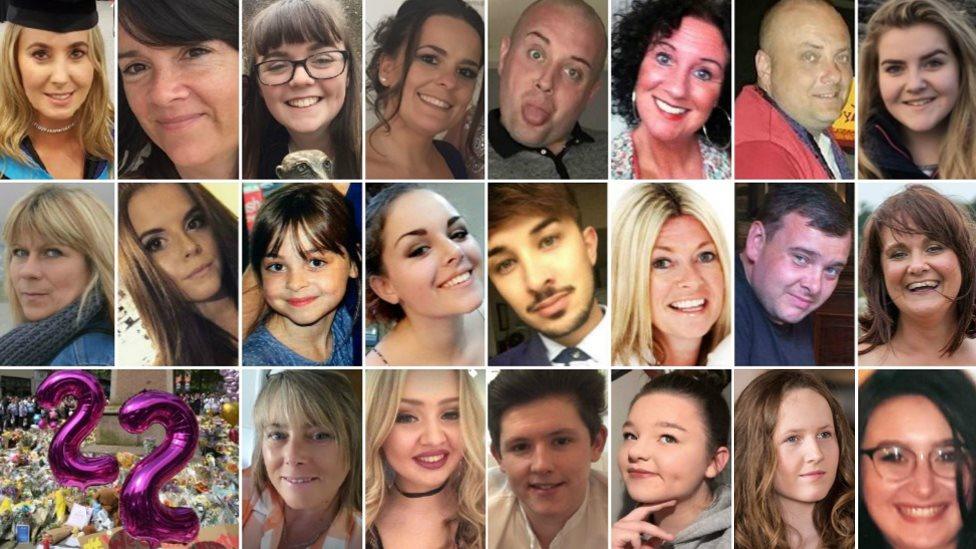
- Published9 July 2020

- Published13 June 2020

- Published21 April 2020
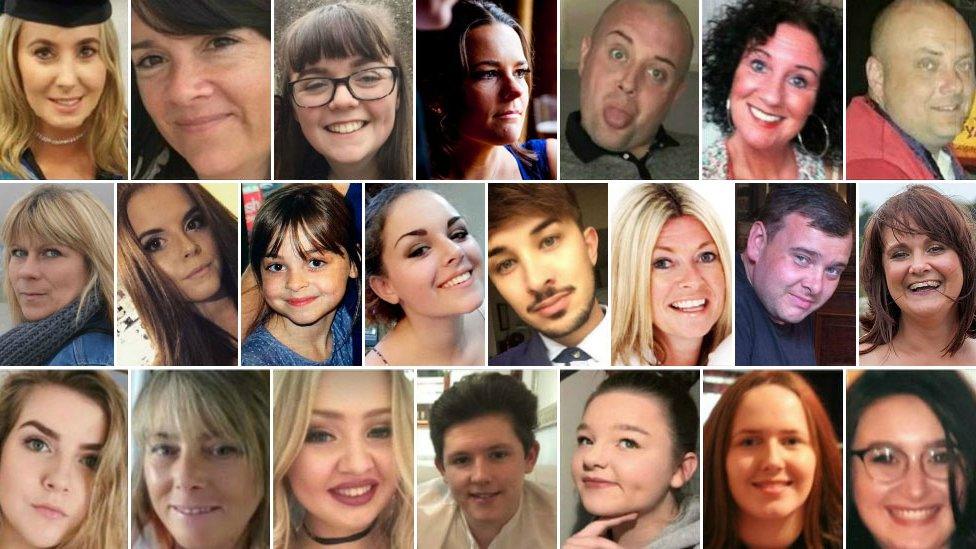
- Published7 April 2020

- Published28 January 2020

- Published17 March 2020
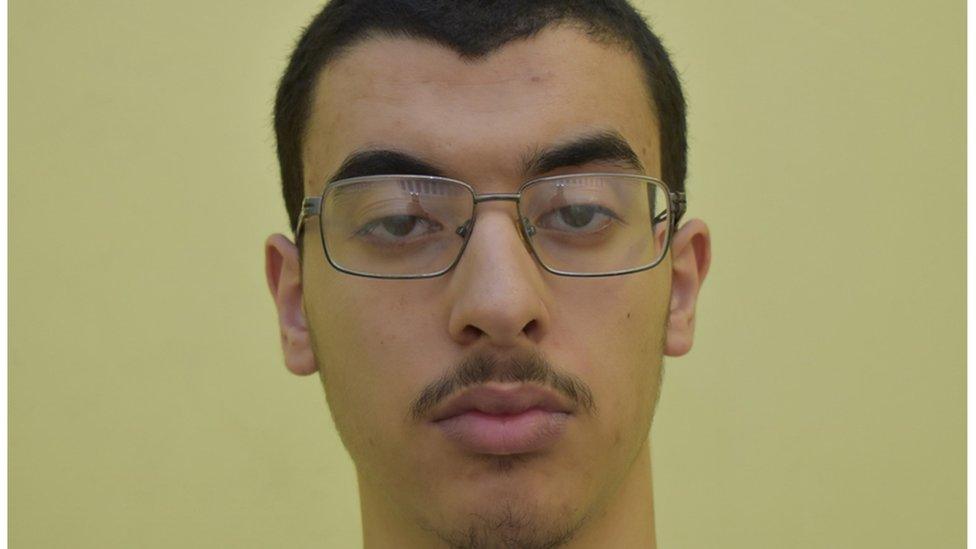
- Published17 March 2020
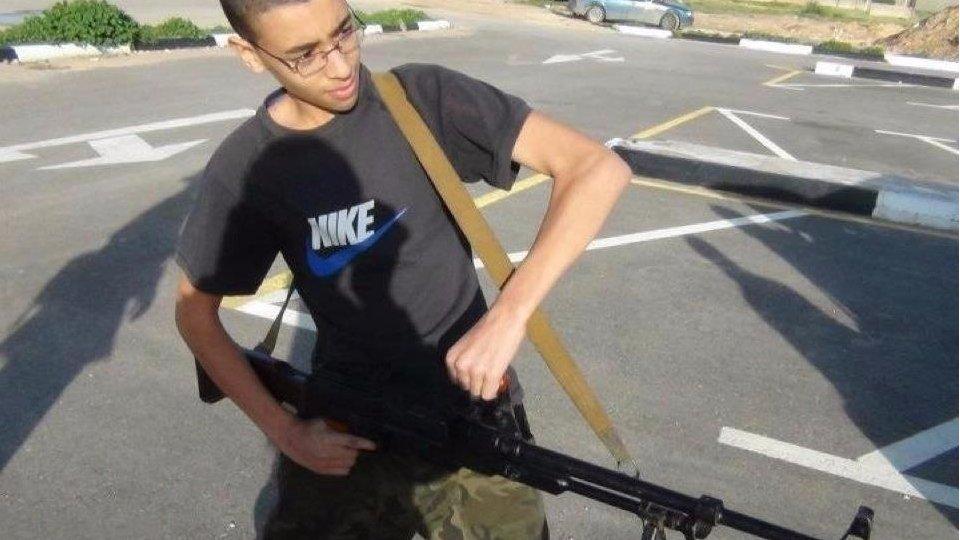
- Published3 November 2022
